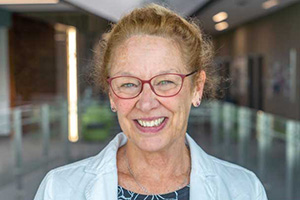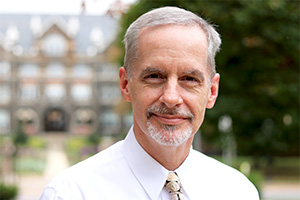Modern Language (K-12)
The mission of the world language education program is to prepare professionals who understand that pedagogical choices grow from a deep understanding of the study of world languages and cultures and also the unique needs of all learners, honoring the diverse students in our classrooms and the larger community being served.
Further, in keeping with the national standards of the five C’s, the mission of the world language education program is to prepare world language teachers to teach students how to:
- Communicate in languages other than English, in written and spoken form,
- Understand perspectives, and products of other cultures,
- Compare the target language to one’s native tongue so as to develop insight into the general nature of linguistic communication, and
- Develop ease in participating in multilingual communities at home and around the world.
Starting with these four principles and a mindfulness of student profiles, candidates construct standards-based plans that are grounded in a study of best practices as defined by research, models of excellence in the field, and creative and ever-dynamic thought. Candidates understand that this reflective practice continues—and, in fact, defines—one's entire career.
Students are advised to complete courses through the Education Department as follows:
- Education 100.2 (Freshman Year - Fall)
- Education 160 (Freshman Year - Spring)
- Education 230 (Sophomore Year) - EDUC 160 and EDUC 230 must be taken in separate semesters.
- Education 340 (Junior Year - Fall)
- Education 360-365 (Senior Year - Fall)
- Education 140.2 and 244 should be taken any semester prior to student teaching.
- Education 375-378 - Student teaching (Senior Year - Spring)
All students interested in teacher certification are reminded that they must complete courses required for initial admission to the teacher certification program.
Course Requirements for Each Language Certification
Dual Certification in Modern Language
When a student completes a full major in one language, certification may be obtained in a second under the following conditions:
- Completion of seven courses above the elementary level in the second language (see current Course Catalog). The student must achieve the required 3.00 average in each language to be recommended for certification. Student teaching experience is required in all languages in which certification is anticipated.
- Students interested in dual certification in modern languages are advised to consult with their advisors early in their academic program.
Professional Education Courses Required for All Modern Language Certifications
Recommended for Freshman Year in the Spring
- EDUC 160 Culture, Community & Diversity: Intro. to Critical Pedagogy (Stage 1 & 2 Field Experience/ fulfills M3)
Recommended for Sophomore Year
- EDUC 100.2 Intro. to the Education of English Language Learners (Spring)
- EDUC 140.2 Computer Technology in the Classroom
- EDUC 230 Student Development & Instructional Design (40-hour Stage 1 & 2 Field Experience)
- EDUC 244 Including Students with Disabilities (Spring)
Recommended for Junior Year
- EDUC 340 Reflective Teaching (Fall only; 40-hour Stage 3 Field Experience)
Recommended for Senior Year
- EDUC 361 Curriculum and Instruction in Foreign Language (Fall only; 110-hour Stage 3 Field Experience)
- EDUC 375-7 Student Teaching
- EDUC 378 Seminar in Secondary Student Teaching
Important Guidelines
- Students must have an overall QPA of 2.7 in order to take education courses at the 200 level or above.
- All education courses must be completed prior to beginning student teaching. No other courses should be taken during the student teaching semester which is completed in the senior year.
- Students must have prior written approval by the program coordinator if they plan to complete any of the these courses at another institution.

Program Coordinators
Dr. Joanne McKeown
Modern Language & Literatures Department Chair
mckeownj@moravian.edu

Dr. Edward Nolan
Director of Secondary Education
nolane@moravian.edu
